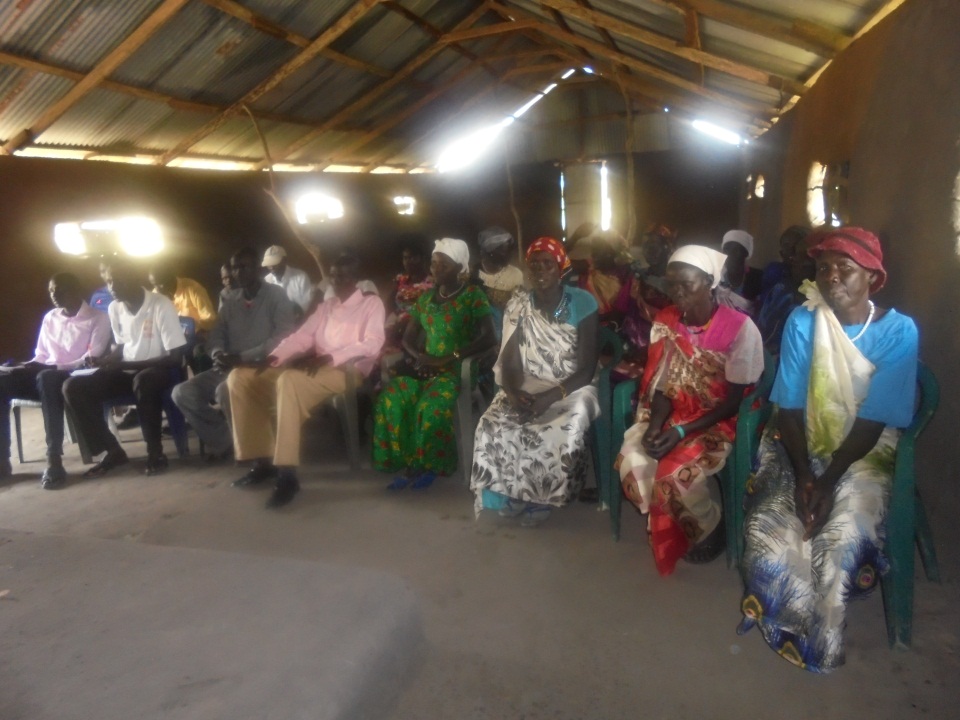
Forging Ahead Despite Challenges
Despite multiple challenges in post-conflict South Sudan, local staff has been hard at work training farm extension agents and health technicians to ready farmers and their families for better days. The civil war has ended, yet there continue to be security and infrastructure issues. The remoteness of the area means that people are not in direct danger from residual conflict, but also that basic services are lacking, including phone communications. Recent heavy rains brought flooding, and widespread illiteracy makes training much more difficult. Yet much has been accomplished.
The focus is particularly on women farmers – the backbones of the community. They need to get up to speed quickly on the most effective ways to manage their crops, vegetables, and homes. Health extension workers have trained “hygiene promoters” to distribute supplies and show women how to treat both well water and river water. Families received soap and instruction on the importance of handwashing.
Agricultural extension workers also identified training needs and mobilized farmer groups to attend training sessions at demonstration plots. They’ve taught basic principles of crop husbandry and growing vegetables. Because these farmers are starting out new, it has been necessary to distribute seeds and basic farming tools. Farmers are now concentrating on planting okra.
While challenges seem to be vast, it is clear that the will of local partner staff is strong. FRB’s implementing organization, Presbyterian Church (U.S.A.), is confident that the agriculture and health extension training is laying the groundwork for success for these people as they return to normalcy following the war. Your support and prayers are much needed and greatly appreciated.
Caption: Farmer groups during agricultural training
South Sudan Uror Program
Led by Presbyterian Church (U.S.A.)
1 community, 400 households, 2,800 individuals
